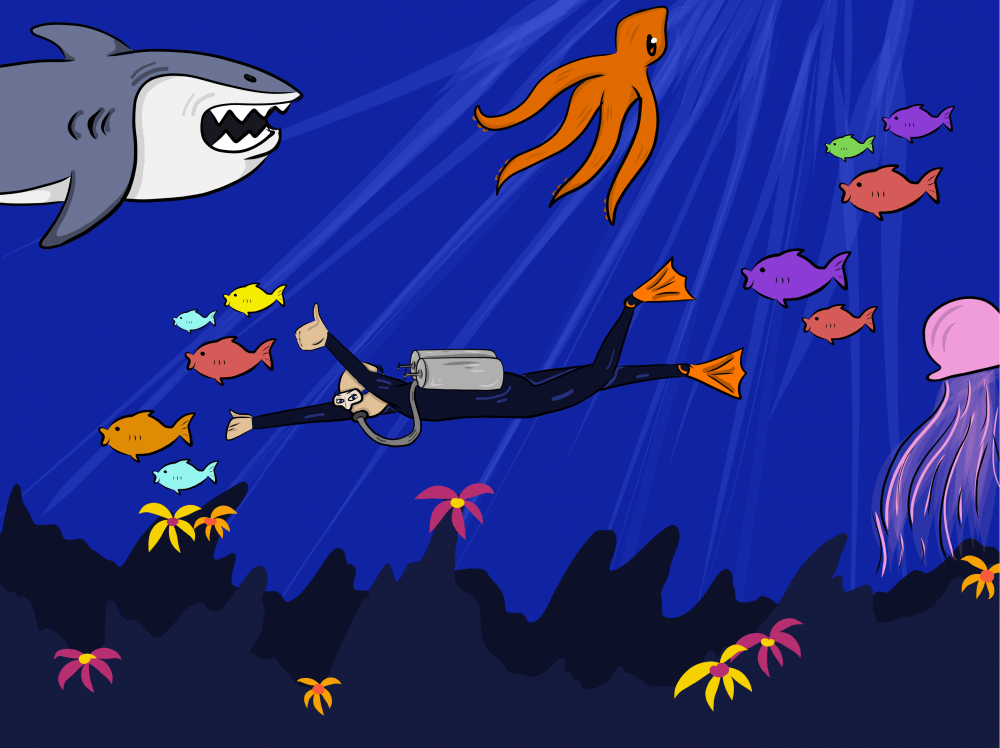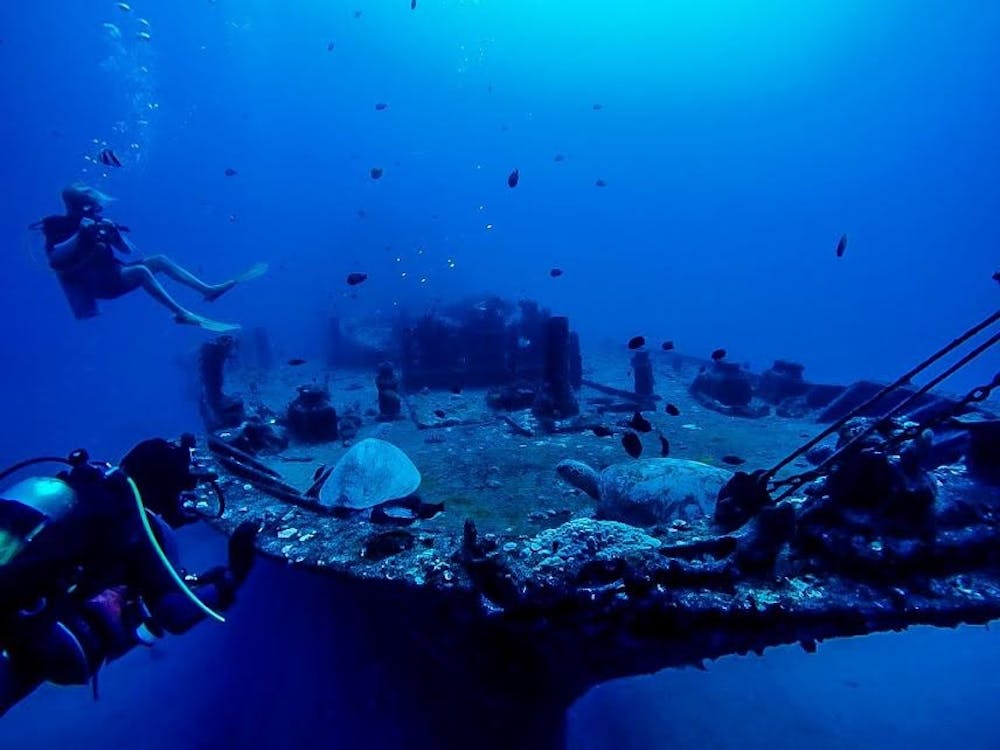Students with subaquatic inclinations should seek out ASU's Devil Divers club, which provides opportunities for ASU students to gain scuba certification and experience underwater adventures.
According to the Devil Divers’ website, the club's “only intent is for divers to learn scuba.” For newcomers, the process starts with group studies, a closed water training and open water excursions to fulfill the Open Water Certification requirements from the Professional Association of Diving Instructors (PADI).
Hannah Kerner, a third-year doctoral student in exploration systems design and the club’s secretary, said the club was meant to connect anyone with an interest in scuba.
“So, mostly we are an outlet or a group where people at ASU — and not just at ASU but people in Tempe — can get trained to learn how to scuba dive,” Kerner said. “We offer training courses in all levels of certification and plan trips for students to get together and go diving.”
However, Kerner also said the club’s activities do more than just help students acquire certification.
“For one, I think the club provides a lot of camaraderie that you don’t get at a scuba shop,” Kerner said. “You know, at a scuba shop you’re just a customer but in the scuba club you’re part of the community. So, diving can be stressful your first time, so having a welcoming community is important for new divers."
Kerner said the club planned trips to ease the burden on their members who were facing the stress of school.
“The scuba club will find a place to stay, we’ll handle splitting of costs and rooms, we handle coordinating, food sharing and dive charters, all of that,” she said. “You can just sign up … that’s all you have to do.”
Melissa King, a journalism senior and the club’s vice president, said the club provides experiences beyond those available to the average student.
“It gives someone something to do other than class and it gives people friends outside of class and experiences too that you wouldn’t have otherwise,” King said. “Not everyone can dive underwater and see things underneath like a diver can.”
She also said one of her favorite experiences actually came during the certification process.
“We drove out to Mexico and did our certification there," King said. "Or, at least I did. We were there for the whole weekend so it was pretty fun getting to know the other people and learning to dive. And being at the beach.”
Jennifer Small, a global marketing consultant at PADI, said the process of certification can take different routes. Learning can happen online or in a classroom, and in-water components may be taken through numerous groups, such as the Devil Divers.
After the Open Water Diver certification, Small said that divers can pursue numerous other studies. The certifications for Adventure Diver, Advanced Open Water Diver, Rescue Diver and Master Diver represent the main courses.
There are specialty courses for those interested in such things as ice diving, enriched air diving and digital underwater photography, a fan favorite, Small said.
Kerner said diving is a lot more accessible than most people think.
“Out of all the extreme sports I’ve done, scuba is the cheapest and the most accessible," Kerner said. "I’ve met a lot of friends and had some really amazing experiences with scuba club, so I can’t recommend it enough.”
Reach the reporter at trevor.hutchins14@gmail.com or follow @TrevorMHutchins on Twitter.
Like State Press on Facebook and follow @statepress on Twitter.





